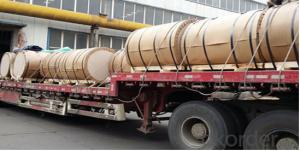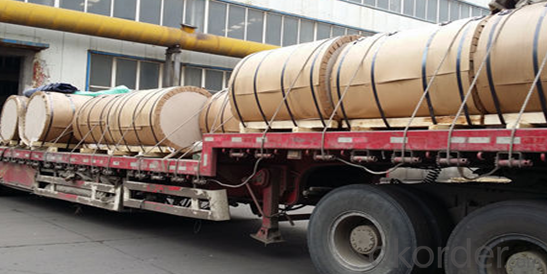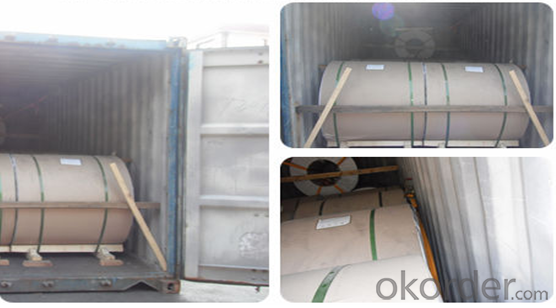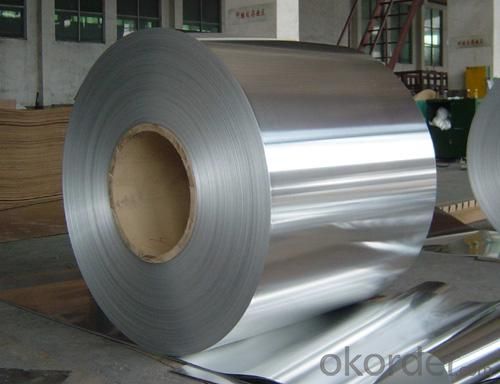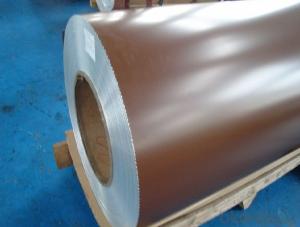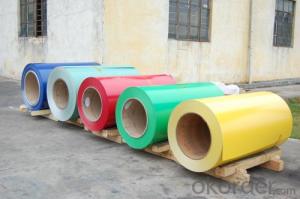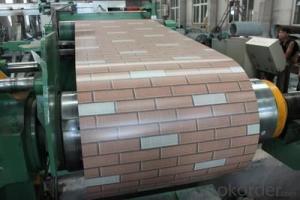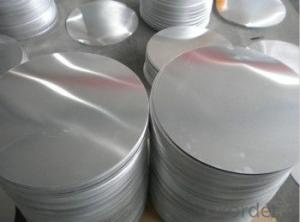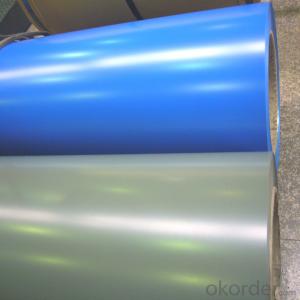Colored Aluminum Coil Stock for ACP Production 1100 3003 3105
- Loading Port:
- Shanghai
- Payment Terms:
- TT OR LC
- Min Order Qty:
- 20 m.t
- Supply Capability:
- 10000 m.t/month
OKorder Service Pledge
OKorder Financial Service
You Might Also Like
Specification
1. Specification of Aluminum
1) Alloy | 1050, 1060,1100, 3003 3004 3105 3005 5005 5052 etc |
2) Temper | O/H12/H14/H1/H18/H32/H34/H36/H38//H111/H112/H116/H321/T6/T651/T3/T351 etc |
3) Thickness | 0.1mm to 6mm |
4) Width | 20mm to 3300mm |
5) Coil weight | 100kgs to 6 tons depends on actual requirement |
6) Core material | Aluminum alloy |
7) Coil Inner diameter | 76mm, 152mm,or as required |
2. Application of Aluminum
(1).Interior: wall cladding, ceilings, bathrooms, kitchens and balconies, shutters, doors...
(2).Exterior: renovations...
3. Feature of Aluminum
Generally speaking, the life of a roof is about 20 years. To determine whether you need a new roof, you should check for shingles that are missing, blistering or curling, damaged flashing, rotting, ceiling spots or algae growth.
Another indication of the need for a new roof is its appearance: Is it faded, discolored or just plain tired looking? Might be time to call The Aluminum Company of North Carolina!
4. Certificate:
SGS and ROHS(if client request, paid by client), MTC(plant provided), Certificate of Origin(FORM A, FORM E, CO), Bureau Veritas and SGS (if client request, paid by client), CIQS certificate
5. Image of Aluminum
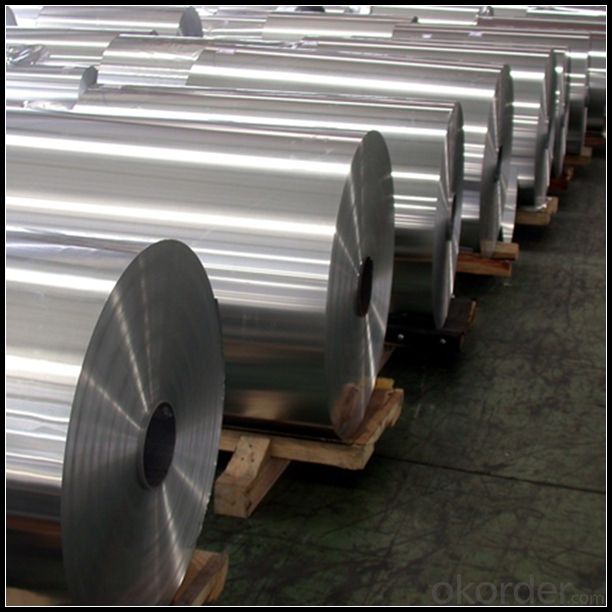
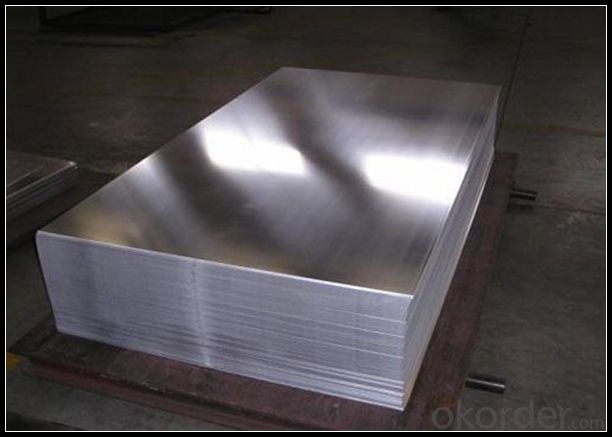
6. FAQ
Q: What is the produce prase? | ||||
A: Normally it would be 40days after received your deposit. | ||||
Q: Can you provide free samples? | ||||
A: Yes, free samples will be sent to you on freight at destination. | ||||
Q: Can I get your latest catalogue? | ||||
A: Yes, it will be sent to you in no time. | ||||
Q: What is the MOQ? | ||||
A: 3 tons | ||||
Q: What are your payment terms? | ||||
A: We accept L/C, D/A, D/P, T/T, West Union,etc. |
- Q: How are aluminum coils protected against dust and dirt during storage?
- Aluminum coils are typically protected against dust and dirt during storage by being wrapped in a protective covering, such as plastic or shrink wrap. This helps to prevent any contaminants from settling on the surface of the coils and potentially causing damage or corrosion. Additionally, storing the coils in a clean and controlled environment, such as a warehouse or storage facility, further reduces the risk of dust and dirt accumulation.
- Q: What are the safety precautions required when handling aluminum coils?
- Some safety precautions required when handling aluminum coils include wearing protective gloves and safety glasses to prevent cuts and eye injuries, ensuring proper lifting techniques to avoid strain or back injuries, storing coils in a secure manner to prevent them from falling or rolling, and keeping the work area clean and free from any potential trip hazards. Additionally, it is important to be aware of the sharp edges of the coils and handle them with care to avoid any injuries.
- Q: The question asks if magnetic induction can be used to inspect the quality of an aluminum coil.
- <p>No, you cannot use magnetic induction to inspect the quality of an aluminum coil. Magnetic induction is a method used to detect flaws or discontinuities in ferromagnetic materials, such as steel, by inducing eddy currents. Aluminum is not a ferromagnetic material, so it does not retain magnetism or support the formation of eddy currents in the same way. Instead, other non-destructive testing methods like ultrasonic testing or radiographic testing may be more appropriate for inspecting the quality of aluminum coils.</p>
- Q: What is the primary substance that constitutes an aluminum coil?
- <p>The material of aluminum coil is aluminum, a lightweight, corrosion-resistant, and malleable metal. It is commonly used in various industries due to its excellent electrical conductivity, thermal conductivity, and formability. Aluminum coils are made by rolling aluminum sheets into cylindrical shapes, which can be further processed into different products such as cans, foils, and other applications.</p>
- Q: Is it safe or advisable to use aluminum coil for wrapping food?
- <p>Using aluminum coil to wrap food is not recommended. Aluminum can react with acidic or alkaline foods, potentially leaching harmful aluminum particles into the food. It's also not designed for food contact and may not be safe at high temperatures. Instead, use food-grade aluminum foil, which is specifically designed for cooking and wrapping food, ensuring it doesn't come into contact with non-food surfaces that could contaminate it.</p>
- Q: high-quality hi-fi power and amplifiers generate large amounts of heat. to dissipate the heat and prevent damage to the electronic components, heat-radiating metal fins are used. would it be better to make these fins out of iron or aluminum? specific heat capacities for aluminum and iron are 0.89 J/degrees C.g and 0.45 J/degrees C.g, respectively. explain your answer
- Look up heat sinks and find one made of iron. You won't. They are always made of aluminum.
- Q: Can aluminum coils be utilized as materials for constructing roofs?
- <p>Yes, aluminum coils can be used for roofing materials. They are known for their durability, corrosion resistance, and lightweight properties, making them an excellent choice for roofing. Aluminum's reflective surface also helps in energy efficiency by reflecting sunlight and reducing heat absorption. It's recyclable and has a long lifespan, which contributes to its sustainability. However, it's important to ensure that the aluminum coils are of the appropriate gauge and quality for the specific roofing application to guarantee structural integrity and performance.</p>
- Q: How are aluminum coils packaged for transportation?
- Aluminum coils are typically packaged for transportation by first being tightly wound and then securely strapped with steel bands. They are often placed on pallets and covered with protective materials such as plastic or cardboard to prevent damage during transit. Additionally, the coils may be loaded into containers or onto flatbed trucks, ensuring proper handling and stability throughout the transportation process.
- Q: How do aluminum coils compare to copper coils in terms of conductivity?
- The conductivity properties of aluminum coils and copper coils differ. Copper is renowned for its exceptional electrical conductivity, making it the preferred option for applications where maximum efficiency is vital, like electrical wiring and motor windings. In comparison, copper coils possess a considerably higher electrical conductivity than aluminum coils. Consequently, copper coils can transmit electricity more efficiently, resulting in decreased power losses and enhanced overall performance. Conversely, aluminum coils exhibit lower electrical conductivity when compared to copper coils. Although aluminum is still a capable conductor of electricity, it is not as efficient as copper. This implies that aluminum coils may experience increased power losses and reduced efficiency in contrast to their copper counterparts. Nevertheless, aluminum coils possess their own advantages in certain applications, such as being lighter and more cost-effective. Ultimately, the choice between aluminum and copper coils hinges on the specific requirements of the application, with copper being favored for its superior conductivity properties.
- Q: When they say to coat entire roof system with Aluminum coating, what does that mean? The area to coat is NOT the ceramic barrel tiles of a roof but the flat section covered with tar paper and granules of shiny sand. Is it a liquid? Clear? Good for the roof.? How is it applied?
- Why you would be coating a flat roof with Aluminum coating is beyond anything I have learned. Flat roofs should have a felt and tar coating to water proof them. Aluminum roof coating is used mostly on mobile homes to reflect heat because mobile homes don't have attics to trap the heat and carry it to vents. It also seals the water out at the metal seams. Aluminum coating is a type of polymer that has aluminum flakes in it. It is brushed on like a thick coat of paint and allowed to dry.
Send your message to us
Colored Aluminum Coil Stock for ACP Production 1100 3003 3105
- Loading Port:
- Shanghai
- Payment Terms:
- TT OR LC
- Min Order Qty:
- 20 m.t
- Supply Capability:
- 10000 m.t/month
OKorder Service Pledge
OKorder Financial Service
Similar products
Hot products
Hot Searches
Related keywords
